Events
Dr. Robert Enright and Dr. Richard Fitzgibbons Receive 2019 International Research Award
Two members of the International Forgiveness Institute (IFI) Board of Directors have been selected to receive an international award recognizing their Forgiveness Therapy research. Dr. Robert Enright, founder of the IFI, and Dr. Richard Fitzgibbons, MD, Director of the Institute for Marital Healing just outside Philadelphia, PA, have been named the 2019 recipients of the Expanded Reason Award.
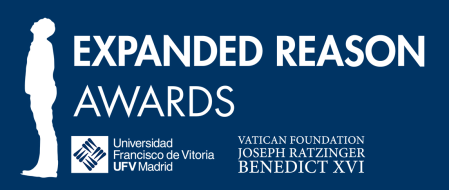
The prestigious award is presented annually by the University Francisco de Vitoria (Madrid, Spain) in collaboration with the Vatican Foundation Joseph Ratzinger/Benedict XVI (Rome, Italy) “to recognize and encourage innovation in scientific research and academic programs.”
Recipients (only two researchers are selected worldwide each year) are determined by an international panel of seven judges who examine books and journal articles to ascertain who across the globe is conducting innovative and exceptional research that cuts across the social sciences. The award criteria includes the challenge of establishing a dialogue of particular sciences with philosophy and theology in line with the thought of Pope Benedict XVI who led the Catholic Church from 2005 – 2013.
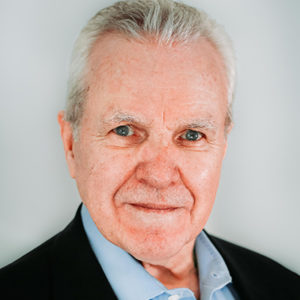
Dr. Richard Fitzgibbons
Drs. Enright and Fitzgibbons co-authored the book Forgiveness Therapy: An Empirical Guide for Resolving Anger and Restoring Hope. The book, published by the American Psychological Association (APA) in 2015, signifies that Forgiveness Therapy is now rightfully taking its place alongside such historically accepted therapies as Psychoanalysis, Humanistic Psychotherapy, and Cognitive Behavioral Therapy.
Forgiveness Therapy is actually a new and updated version of a previous book by Drs. Enright and Fitzgibbons, Helping Clients Forgive, that was published in 2000, also by the APA. The new 358-page volume helps clinicians learn how to recognize when forgiveness is an appropriate client goal and provides concrete methods for working forgiveness into therapy with individuals, couples and families. It is grounded in theology, philosophy, psychiatry, education and the social scientific method.
Dr. Fitzgibbons is a long-time research associate of Dr. Enright’s. Trained in psychiatry, he has worked with hundreds of couples over the past 40 years. His book, Habits for a Healthy ![]() Marriage: A Handbook for Catholic Couples, is available at Amazon.com.
Marriage: A Handbook for Catholic Couples, is available at Amazon.com.

Dr. Robert Enright
Dr. Enright, in addition to founding the IFI 25 years ago, has been a professor with the University of Wisconsin-Madison School of Education’s highly-regarded Department of Educational Psychology since 1978. He is the author or editor of seven books and more than 150 publications on social development and the psychology of forgiveness. He pioneered forgiveness therapy and developed an early intervention to promote forgiveness–the 20-step “Process Model of Forgiving.”
Both Dr. Fitzgibbons and Dr. Enright have been invited to attend and formally accept their awards at the Expanded Reason Awards Ceremony on Sept. 19, 2019 at the University Francisco de Vitoria in Madrid.
The Expanded Reason Awards recognize extraordinary teachers and researchers.
The Awards Ceremony is part of the 3-day International Expanded Reason Congress in Madrid that brings together university researchers and teachers from all over the world. The Congress seeks to deepen the dialogue among science, philosophy, and theology through presentations, roundtable discussions, and workshops. Dr. Fitzgibbons and Dr. Enright will be outlining the concepts behind their winning project in a talk that will also be published in the official proceedings of the Congress.♥
Reflections for the 25th Anniversary of Our International Forgiveness Institute, Inc.
It was the early 1990’s and I just recently did an interview for a Chicago newspaper. The journalist published my home telephone number within the article. For the next two weeks, it seemed as if the phone just would not stop ringing. The people who called were seeking information about how to forgive. “There is a genuine hunger out there for people to know how to go about forgiving,” was my conclusion to family and colleagues.
about how to forgive. “There is a genuine hunger out there for people to know how to go about forgiving,” was my conclusion to family and colleagues.
Because we had published the first-ever empirical article on forgiveness in a peer-reviewed journal article only a few short years before this, in 1989, there was little out there instructing people on how to forgive those who have deeply hurt them. Because of the ground-breaking work of Msgr. John Hebl, with whom I had the honor of publishing the second-ever empirical article on forgiveness in a journal, in 1993, there was emerging scientific support for our Process Model of Forgiveness.
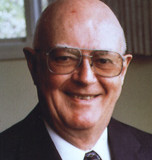
William Walker
About this same time, the late and great Dr. William Walker of Madison, who ran radio stations, wrote a letter to me (email was not big yet). He explained that many years ago, he received his doctoral degree from the Department of Educational Psychology at the University of Wisconsin-Madison, where I was (and am) a professor. Dr. Walker explained to me that he was drawn to our forgiveness work, had the financial means to bring this to an important level, and he had an interest in joining the research. I enthusiastically agreed and a strong collegial relationship and friendship developed.
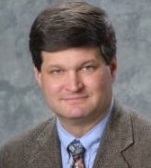
Tom Walker
When my dear friend William passed away, his son Thomas Walker took up the cause and provided the necessary funding to keep the IFI viable and expanding, as he does to this day.
Thank you, William and Thomas!
Given that we were getting some financial support and the many requests for forgiveness information continued, some of my colleagues and I decided to try to form an entity with the goal of serving people who wanted information on how to forgive. This was to start as a service entity for all who were interested in forgiving.
Our little group decided to take the non-profit route and developed the 501(c)3 entity, the International Forgiveness Institute, Inc. (IFI) in Madison, Wisconsin in 1994. A Board of Directors was formed to help guide the development of this organization. Thank you, Board Members, for your dedicated service to our IFI! At the time of its formation there was nothing “international” about this organization. Yet, it was the vision, the promise of such expansion, that led to our keeping that word “International” in the title. We, of course, started small, without even a website.
International Forgiveness Institute, Inc. (IFI) in Madison, Wisconsin in 1994. A Board of Directors was formed to help guide the development of this organization. Thank you, Board Members, for your dedicated service to our IFI! At the time of its formation there was nothing “international” about this organization. Yet, it was the vision, the promise of such expansion, that led to our keeping that word “International” in the title. We, of course, started small, without even a website.
A major turn occurred for us at the beginning of the 21st century. Because our work was having success in the mental health field with our Process Model of Forgiveness, I had an idea: Why not start to introduce forgiveness to children and adolescents? After all, if they will experience injustices, perhaps even severe injustices in this world, why not equip them with the scientifically-supported approach of forgiveness to reduce the resentment, caused by the injustices, so that they can be resilient in their emotional well-being and in their healthy family interactions?
With the idea of prevention in mind, we decided to build forgiveness curricula for children, starting in first grade (age 6 and 7). We did so through age-appropriate children’s stories, such as Dr. Seuss’ Horton Hears a Who. The children, in their own classrooms, then begin to see what forgiveness is, how story characters navigate interpersonal conflict, and what happens when people forgive. We piloted this curriculum for the first time in Belfast, Northern Ireland, did the research on this endeavor through the university, and published the first empirical evaluations of this work in 2007.
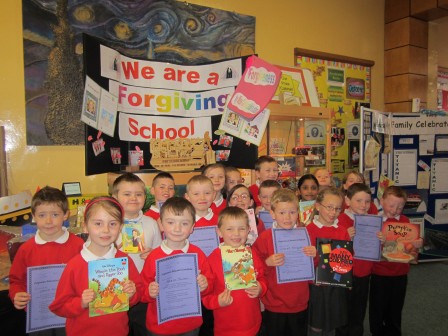
Primary 3 students at Holy Family Primary School in Belfast celebrate their “Forgiveness Graduation.”
The results were dramatic! Children, upon hearing stories and reflecting on the theme of forgiving, actually reduced in their own anger. Teachers saw greater cooperation among students in classrooms and teachers reported to us that they, themselves as teachers, improved in their own teaching skills as a result of being a forgiveness instructor.
The Forgiveness Education project grew to such an extent that we now have a complete set of curriculum guides from pre-kindergarten (age 4) all the way up to the end of high school (age 18), including an anti-bullying guide and two guides for parents: A Family Guide (for those with primary-aged children) and Strengthening Families (for those with middle-school aged children). Dr. Jeanette Knutson, Amber Osmulski, and Dr. Matthew Hirshberg helped to craft these guides. Thank you, Jeanette, Amber, and Matthew!
 The Forgiveness Education curriculum guides have been ordered by educators from over 30 countries across the world. Other international endeavors include both the Jerusalem Conference on Forgiveness and the Rome Conference on Forgiveness and a new Forgiveness Education initiative in Bethlehem in the Middle East. Thank you, Mr. Thomas and Terri Lucke, for your generous funding! We now, I think, have earned the word “International” in our organization’s title.
The Forgiveness Education curriculum guides have been ordered by educators from over 30 countries across the world. Other international endeavors include both the Jerusalem Conference on Forgiveness and the Rome Conference on Forgiveness and a new Forgiveness Education initiative in Bethlehem in the Middle East. Thank you, Mr. Thomas and Terri Lucke, for your generous funding! We now, I think, have earned the word “International” in our organization’s title.
Our long-time Director at the IFI, Dennis Blang, has been instrumental in sending far and wide information about the Forgiveness Education guides, in maintaining our website, publishing the Forgiveness News, crafting the electronic newsletters, and overseeing the everyday important activities of our institute. Thank you, Dennis! And thank you to our earlier Directors, Dr. Gayle Reed and Mary Mead!
The service work has expanded so that we now are serving homeless people, those in prisons, and we have started a bumper-sticker campaign, “Drive for Others’ Lives” as a way to help make the roads a more civil environment. Many of these new ideas come from our stellar volunteer at the IFI, Jacqueline Song. Thank you, Jacqueline!
A big thank you goes out to our long-term President, Roy Lloyd, and to our Ethics Committee members for their dedicated work in examining our protocols that impact the homeless, those in prison, and others. Thank you to those “on the ground” who oversee important forgiveness programs in Belfast (Leah Judge), Greece (Dr. Peli Galiti), and Monrovia, Liberia (Rev. Kortu Brown and Mr. George Cooper). We want to thank all who have financially contributed to our efforts over this quarter-of-a-century.
 We started with one idea: Forgiveness is important as it can quell unhealthy anger and improve mental health and relationships. Many are catching on to this idea. In our humble opinion, forgiveness should now become a natural part of families, schools, organizations, and individual hearts for the good of humanity.
We started with one idea: Forgiveness is important as it can quell unhealthy anger and improve mental health and relationships. Many are catching on to this idea. In our humble opinion, forgiveness should now become a natural part of families, schools, organizations, and individual hearts for the good of humanity.
Long live forgiveness!
Robert
Celebrate Spring with a Free Gift–or Two–from Us!
.

This professionally-designed and printed vehicle bumper sticker (11″ x 3.5″) is our gift to you–and you can get up to two of them free. The glossy finish will last for years. The removable adhesive backing will not leave any residue on the surface where it is affixed..
.
A single life lost to a traffic crash is one life too many because it will mark the end of that person’s tremendous potential and the gifts that he or she could share with family members, our communities, and our world.
“Deaths from road traffic crashes in 2018 increased to 1.35 million a year. That’s nearly 3,700 people dying on the world’s roads every single day.”
.
..
Get your free bumper stickers today!
The Role of Forgiveness in the Process of Healing
Rome, Italy – At the direction of Pope Francis himself, 190 of the Catholic Church’s highest-ranking officials gathered at the Vatican in Rome last month for a 4-day meeting on “The Protection of Minors in the Church.” Participants included 114 presidents of bishops’ conferences or their delegates, representatives from 14 Eastern churches in communion with Rome, female and male leaders of religious orders, the chiefs of several Vatican congregations, victim advocates, and others.After an introduction by the Holy Father, the very first keynote speaker at the meeting addressed what the Church–particularly those in attendance–must do to help the victims heal from the effects of the abuse they endured: implement the healing process developed and scientifically-tested by Dr. Robert Enright, of the University of Wisconsin-Madison and the International Forgiveness Institute, Inc. in Madison, Wisconsin.
“For this portion of my presentation, I will rely heavily on Dr. Robert Enright, professor at the University of Wisconsin-Madison in the United States, and the pioneer in the social scientific study of forgiveness,” said Cardinal Luis Antonio Tagle, Archbishop of Manila (Philippines). “We are collaborating with him on the programme of forgiveness in the Philippines. In fact, in this very moment there is a session among Catholic School Educators in Manila on “Pain, wound and forgiveness”.
“According to Dr. Enright,” Cardinal Tagle continued, “one concern that we must address is: Once justice is served, how do we help the victims to heal from the effects of the abuse? Justice is necessary but by itself does not heal the broken human heart. If we are to serve the victims and all those wounded by the crisis, we need to take seriously their wound of resentment and pain and the need for healing.”
Demonstrating his remarkable comprehension of Dr. Enright’s 20-Step pathway to healing, Cardinal Tagle added, “Resentment can be like a disease, that slowly and steadily infects people, until their enthusiasm and energy are gone. With increasing stress, they are prone to heightened anxiety and depression, lowered-self-images, and interpersonal conflicts that arise from the inner brokenness.
“Yet, before we even raise the issue of asking the victims to forgive as part of their healing, we must clarify that we are not suggesting that they should just let it all go, excuse the abuse, just move on. No. Far from it. Without question, we know that when victims come to a moment of forgiving others who have harmed them, a deeper healing takes place and the understandable resentments that build up in their hearts are reconciled. We know that forgiveness is one powerful and even scientifically supported pathway for eliminating pain, resentment and the human heart.
“We as the Church should continue to walk with those profoundly wounded by abuse building trust, providing unconditional love, and repeatedly asking for forgiveness in the full recognition that we do not deserve that forgiveness in the order of justice but can only receive it when it is bestowed as gift and grace in the process of healing.”
In an interview with America: The Jesuit Review following Cardinal Tagle’s talk, Dr. Enright said his research has found that survivors of trauma, including sexual abuse, report lower rates of depression when they include forgiveness in their healing process.
“Injustice is a wound,” Dr. Enright said, “but what happens after that wound is ever greater woundedness. The injustice leads to lots of complications, and the basic complication is what I’ve come to call resentment–resentment that can manifest itself years later in depression, anxiety and other mental health challenges.
While forgiving the offender can help those suffering from the fallout of trauma, Dr. Enright cautioned that forgiveness can never be expected from those who experience abuse, merely offered as a choice.
trauma, Dr. Enright cautioned that forgiveness can never be expected from those who experience abuse, merely offered as a choice.
“It is not excusing; it is not forgetting; it is not throwing justice under the bus; it may or may not be reconciling,” he said.
According to Vatican News, the goal of the Feb. 21-24 meeting at the Vatican was “that all of the Bishops clearly understand what they need to do to prevent and combat the worldwide problem of the sexual abuse of minors. Pope Francis knows that a global problem can only be resolved with a global response.”
The 61-year-old Cardinal Tagle has been the Archbishop of Manila (where he was born) since December 12, 2011, and became a cardinal less than a year later. He has worked with Dr. Enright, co-founder of the International Forgiveness Institute (IFI), since the two met at the Jerusalem Conference on Forgiveness, organized by the IFI in July, 2017.
Cardinal Tagle is personally leading an initiative in the Philippines to establish Forgiveness Education Programs in every Catholic school throughout the country’s more than 7,000 East Asian islands. Curriculum Guides developed by Dr. Enright for students in pre-k through 12th grade will form the foundation of those programs.♥
Read the full text of Cardinal Tagle’s presentation – The Smell of the Sheep: Knowing their pain and healing their wounds is at the core of the shepherd’s task.
Learn more:
1) Dr. Enright’s Forgiveness and Forgiveness Education Programs:
- 20-Step Forgiveness Healing Process
- Forgiveness Education and Therapy
- Forgiveness Education Curriculum Guides
2) The Protection of Minors in the Church:
- Feb. 21 – Feb. 24 Daily Program
- List of All Participants
- Text of All Presentations (plus the concluding speech by Pope Francis – in your choice of 8 languages)
Dr. Enright Shares Forgiveness News with Audiences Around the World
The man Time magazine called “the forgiveness trailblazer” because of his groundbreaking forgiveness research, has just returned from a five-week international speaking tour during which he provided specialized forgiveness workshops and presentations to such diverse audiences as prison administrators and correctional facility innovators, cancer doctors and oncology specialists, and educational pioneers.

Dr. Robert Enright
Dr. Robert Enright, forgiveness researcher and educator who co-founded the International Forgiveness Institute, travels globally twice per year to respond to at least a handful of the innumerable requests that flow into his office on an almost daily basis.
In addition to private meetings in some of the more than 30 countries where he has helped establish elementary and high school Forgiveness Education Programs in the past few years, his formal presentation schedule on this most-recent tour included stops at Ramat Gan, Israel; Bratislava, Slovakia; and Belfast, Northern Ireland.
Those presentations included:
- “Forgiveness Therapy for The Imprisoned: From Practice to Research Outcomes” on January 9 during the Restorative Justice, Forgiveness, and Prisoners Conference at Bar Ilan University in Ramat Gan, Israel–a short distance from Tel Aviv.
- “Forgiveness Therapy for Patients with Multiple Myeloma and Other Blood Cancers,” on Jan. 16 (World Cancer Day 2019) during the Sympozium Integrativna Onkologia at the Slovak Academy of Sciences in Bratislava–the capital of the Slovak Republic.
- “Forgiveness Education for Our Students” on Feb. 1 during the 12-day forgiveness-focused extravaganza in Belfast, Northern Ireland called the 4Corners Festival that ran from Jan. 30 through Feb. 10. The theme for the 2019 Festival was “Scandalous Forgiveness.” Dr. Enright selected Belfast as the first city in which he would test his forgiveness education curriculum methodology. That was 17-years ago and the Program continues to this day.♥
Read More:
- “Presentations Around the World Focus on Forgiveness” – Additional details, graphics and photos related to Dr. Enright’s most-recent world tour.
- “UW-Madison’s Enright delivers presentations about forgiveness work at conferences overseas” – An article on the University of Wisconsin-Madison School of Education website. Dr. Enright is a psychology professor with UW-Madison’s Dept. of Educational Psychology which has been named as the top program in its field in U.S. News & World Report‘s 2019 Best Graduate Schools ranking for 7 of the last 8 years.
- “Forgiveness Therapy for Patients with Multiple Myeloma and Other Blood Cancers” – Dr. Enright’s slide presentation for his workshop in Bratislava, Slovakia.
- “Opening the Door to Forgiveness” – A UW law program brings the victims of violent crimes face-to-face with the people who hurt them, proving that human compassion resides in the most unlikely places; On Wisconsin magazine.



